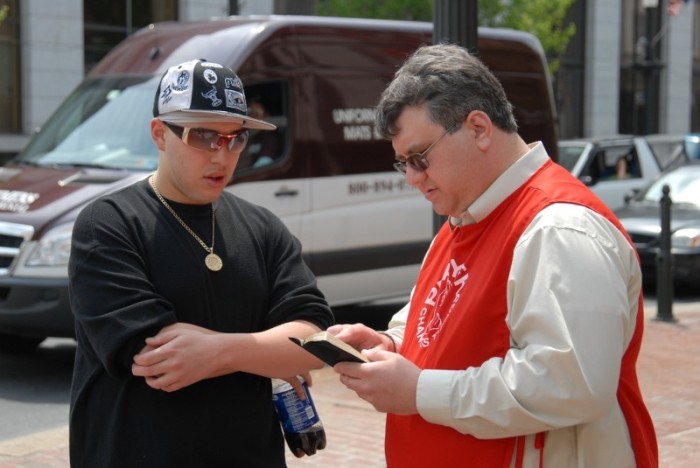Evangelist Barred From Street Preaching at University of Alabama Petitions the Supreme Court

The American Center for Law and Justice, a conservative legal group, has backed an evangelical preacher who was barred from preaching on the sidewalk to University of Alabama students, filing a petition on Tuesday to the U.S. Supreme Court to hear his free speech case.
The case concerns Rodney Keister, a traveling Christian evangelist, who has been visiting college campuses throughout the country for years, preaching on the sidewalks and handing out Gospel tracts.
In March 2016, however, when he was attempting to preach at UA in Tuscaloosa, he was told by campus police that he needs a permit from the university to spread the Gospel message.
The evangelist sued UA with the help of attorney Nate Kellum of the Center for Religious Expression, but the federal district court sided with UA, declaring that sidewalks are a "special enclave," even though the UA campus is "not fenced off, gated, or otherwise self-contained to prevent public access."
The U.S. Appeals Court for the 11th Circuit agreed with the lower court that the area where Keister was preaching was "not intended as an area for the public's expressive conduct, and contains markings clearly identifying it as an enclave."
"Neither are we persuaded by Mr. Keister's argument that because the intersection is open as a public thoroughfare, it is per se a traditional public forum," the Court said, and "the First Amendment does not guarantee access to property merely because the government owns it."
ACLJ disagreed.
"Here at the ACLJ, we filed an amicus brief supporting Mr. Keister's request that the court of appeals rehear the matter. When that request was denied, Mr. Keister retained us to take his case to the Supreme Court. And today we are filing that request," the law group explained.
The ACLJ highlighted three main points in its petition to the Supreme Court, noting that the question of whether sidewalks along public streets are traditional public fora for speech needs to be closely examined.
"Review is especially needed here because the constitutional rule the Eleventh Circuit adopted – refusing to grant sidewalks along public streets presumptive public forum status, disregarding the seamless connection to other city streets and sidewalks, and instead relying upon the identity of the adjacent property – departs dramatically from the way other federal circuits – and this Court – have addressed the public forum issue," the law group added.
"Moreover, the constitutional rule the lower court adopted – that there is no public forum if the street and sidewalk run through 'the heart of campus' – is incoherent, unworkable, and will generate uncertainty and an increase of litigation, thereby chilling free speech and forcing courts to resolve endless nice questions about the surroundings of sidewalks," it added.
On his website, Keister states that his ministry engages in evangelism conventions, "soul-winning" rallies, open-air preaching, door-to-door evangelism, biblical counseling, and other means through which it seeks to "glorify God as we show people their need for the Saviour."
"When Jesus Christ walked this earth, He was concerned about the needs of others. All who met Him realized He was different from everyone else they had ever met!" the ministry proclaims.
"We are here to represent Jesus Christ to a dying world. In a society of constant change and dwindling morals, we desire to help you prepare to stand before God."





























